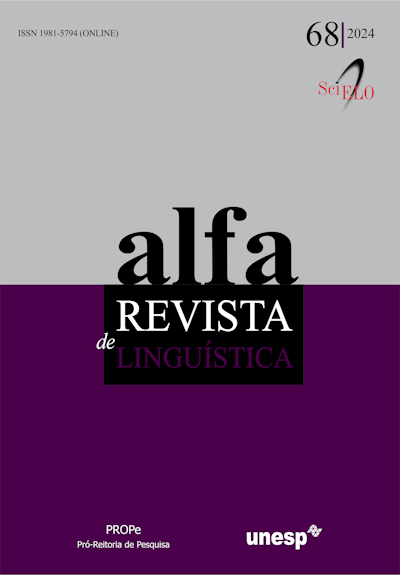Portuguese class as the encounter between the other word and the word of the other
a study about ecological relations
DOI:
https://doi.org/10.1590/1981-5794-e17298Keywords:
Portuguese class, ecology, encounter, reading, written text productionAbstract
This article has as its theme the event Portuguese class taken as the encounter (based on Ponzio, 2010a), as it pertains to the education of the students as readers and producers of text-utterances. The objective was to draw possible implications in the event Portuguese class from: a) the organizational setting of the administrative actions in the scope of the educational institution; b) the setting of the literacy events and practices in the scope of the study field groups; and c) literacy practices of the students that participated. The theoretical basis includes the Vigotskian ideology, the Bakhtin Circle and the studies in literacy. From the data gathered, I infer that there are two school cultures in the field of study, in ecological relations, which are, namely, culture of (un)ease in School 1 and culture of (re)affirmation in School 2. Thus, I support the thesis that the event Portuguese class as encounter implies ecological relations in the scope of the two school cultures coexistent in these same relationships: the (un)ease and the (re)affirmation, reiterated/feedbacked, respectively, in/by the three dimensions of the tripartite architectonics of each culture, both referenced by the other in the encounters — or lack of such encounters — of the subjects immersed in the larger ecology under study.
Downloads
Downloads
Published
How to Cite
Issue
Section
License
Copyright (c) 2024 ALFA: Revista de Linguística

This work is licensed under a Creative Commons Attribution 4.0 International License.
Manuscripts accepted for publication and published are property of Alfa: Revista de Linguística. It is forbidden the full or partial submission of the manuscript to any other journal. Authors are solely responsible for the article's content. Translation into another language without written permission from the Editor advised by the Editorial Board is prohibited.

